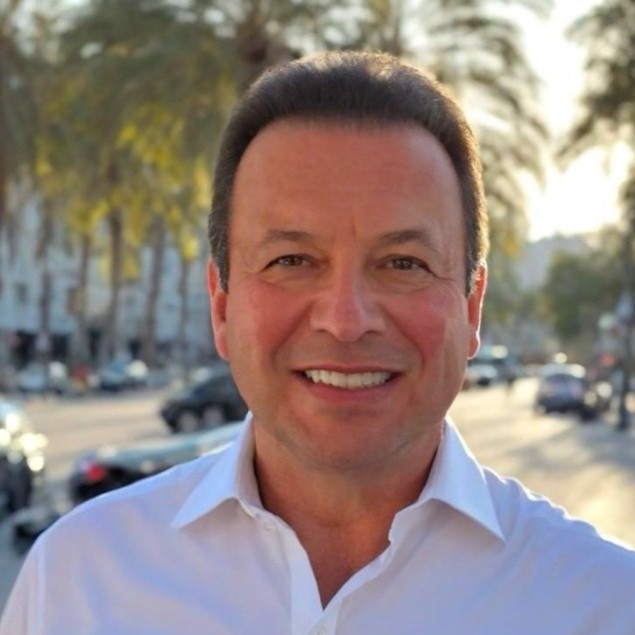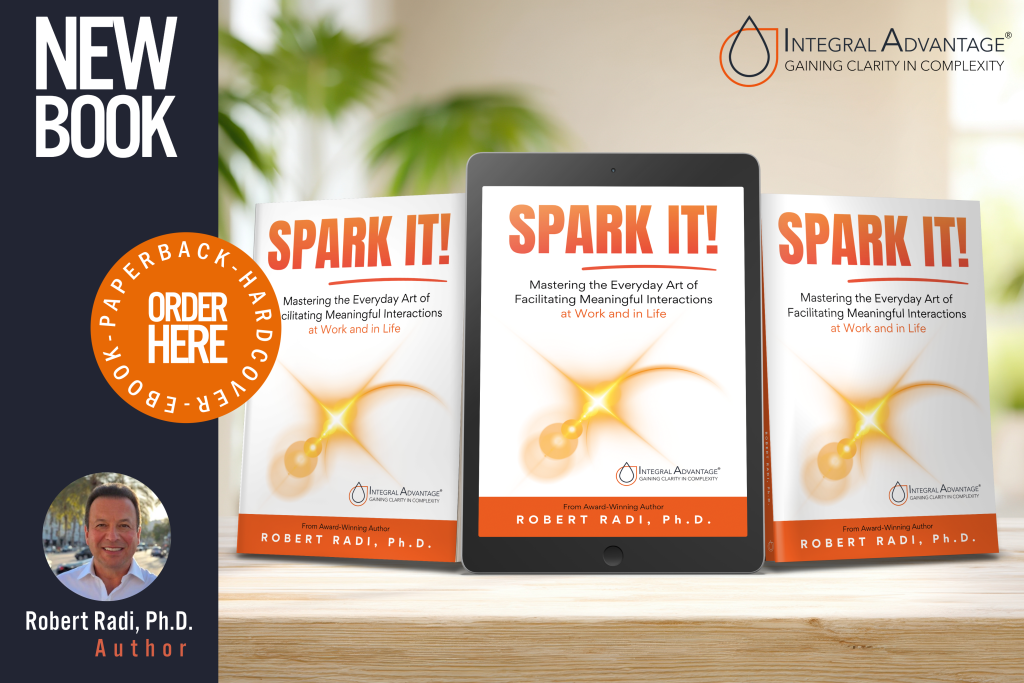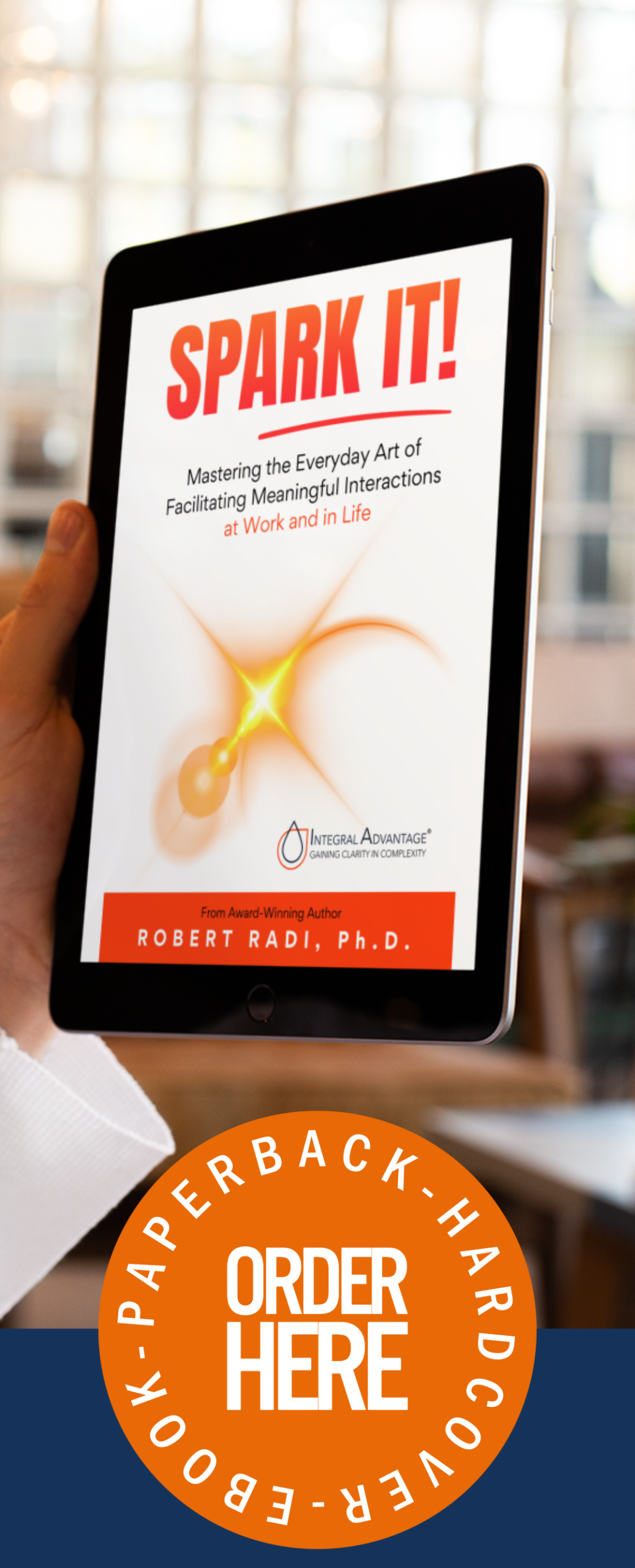
Summer 2025 | By Dr. Robert Radi
Award-winning author and innovation strategist. President and Partner at Integral Advantage®, an IACET-accredited organization committed to cultivating leadership, strategic capacity, and organizational effectiveness across private and public sector entities. You can follow him on LinkedIn.
You Can Listen to the Article
The Moment That Shifted the Room
It wasn’t a keynote. There were no slides, breakout rooms, or a formal agenda. Just five people, a whiteboard, and the tension of an unsolved decision hanging in the air. The room had grown quiet after a flurry of back-and-forth. Everyone spoke. No one had aligned.
Then, a facilitator emerged.
She didn’t carry that title or role. She leaned in and asked a simple question:
“What’s the real concern behind the concern?”
The room shifted. Postures relaxed. Heads turned. Someone exhaled.
What followed wasn’t magic. It was facilitation—unannounced, invisible, and deeply human.
We often think of facilitation as something formal: a workshop, a retreat, or a structured team session. But facilitation is not limited to sticky notes, timelines, or flip charts. It’s not a title, a credential, or a line item on a meeting agenda.
Facilitation Belongs Everywhere
At its heart, facilitation is an everyday art—an intentional way of being that creates the conditions for people to think more clearly, listen more deeply, and move forward with greater meaning.
Whether you’re guiding a project team, navigating a disagreement, mentoring a colleague, or talking through a family decision at the dinner table, you are facilitating. Or more precisely, you have the opportunity to facilitate. And how you show up in those moments—what you notice, what you ask, what you hold back—can determine whether the conversation yields confusion or clarity, disconnection or insight, impasse or momentum.
Consider this story from a home setting. Tina had tried every way to connect with her 16-year-old son, Marcus. He’d grown distant, retreating to his room, giving short answers, shrugging off conversation. One evening, instead of pushing for information, she sat beside him quietly and asked:
“What’s something you wish I understood better about your world?”
There was a pause. A long one.
Then, surprisingly, he answered:
“That I’m trying, even when it looks like I’m not.”
That night didn’t solve everything. But it unlocked something. A question—not a lecture, not a demand—had cracked the door open.
Often, it’s about taking incremental steps, even if they don’t feel like they’re in the right direction. This movement can feel like a dance. Ever tried to get a teenager to be consistent in executing a task? That is a dance characterized by three steps forward and two steps backward.
If you have experienced this dance, you are not alone. A few years ago, I was facilitating a course with the U.S. Air Force. Many participants were retired military now serving in civilian leadership roles—experts in their domains, with deep institutional knowledge and strong perspectives.
One of them, a leader overseeing cybersecurity, made a compelling comment during a discussion on complexity and interconnectedness. He said, “Everything is cybersecurity now. It affects every system and every process. Everyone has an opinion about it—even if they don’t really understand it.”
I nodded, then added with a smile, “You’re absolutely right. I’m the father of a teenager who talks about cybersecurity every day—it’s his passion. But somehow, he still forgets to lock the front door.”
The whole cohort burst into laughter. It was a shared moment of recognition—about parenting, paradox, and the needed humor that carries us through complexity.
We live in a world flooded with communication—Zoom calls, Slack threads, endless meetings—but we are starving for meaningful dialogue. The difference isn’t in how much we talk, but in how we facilitate. Real facilitation slows the conversation just enough for something new to emerge.
It invites us to stop performing and start co-creating.
It asks us to be guides, not just contributors.
Facilitation is one of the most underappreciated yet essential skills in work and life. It’s the connective tissue of progress—quietly shaping alignment, fostering inclusion, and generating clarity. Managers, educators, team leaders, coaches, and even parents benefit from learning how to facilitate—not just talk, but guide; not just share, but shape.
The Principles of SPARK IT!
Over time, I began to observe that the most effective facilitators weren’t the most polished. They were the most present. They didn’t direct—they invited. They didn’t impose—they uncovered. They helped others connect meaningfully—with ideas, with one another, and with themselves.
From that realization, I developed a guiding structure, SPARK IT!, a flexible compass for navigating the messy terrain of human interaction. Each principle reflects a practice that, when applied with intention, turns everyday conversations into moments of transformation:
- Set the Space – Establish trust, purpose, and clarity.
- Prompt with Purpose – Ask catalytic questions.
- Anchor in Context – Make ideas relevant and real.
- Respond with Curiosity – Listen beyond judgment.
- Kindle Connection – Cultivate shared understanding.
- Iterate in Real Time – Adapt to the moment.
- Translate Insight into Action – Turn learning into momentum.
This isn’t a checklist. It’s something you feel as much as apply. It is not sequential, as you may need to shift from one principle to another. The seven principles of SPARK IT are easy to remember and tap into when we recognize what is happening in the moment and intentionally engage by applying this model.
What Question Should I Have Asked?
During my time serving on the La Quinta City Council, I had the opportunity to work with leaders from various sectors, including public, private, and community-based organizations. One of the most quietly impactful conversations I remember wasn’t on a stage or in a speech. It happened in a small meeting room during a routine discussion about SilverRock, the city’s municipal golf course.
At the time, Andy Vossler, CEO of Landmark Golf, was overseeing the management of the course. He was a contractor, yes—but more than that, a thoughtful partner in the city’s stewardship of a public asset. Andy is the son of the late professional golfer and PGA Tour winner Ernie Vossler, so golf was in his DNA; however, his approach was distinctly his own.
Our meeting that day involved multiple parties: me, the city manager, and Andy. We covered a range of topics—from course operations to development timelines for nearby hotels. The agenda was packed. The tone was businesslike. The meeting could have ended like so many do—with a quick “thank you” and a shuffle of papers.
But instead, Andy paused and asked a question that has stayed with me for years:
“Was there a question I should have asked but didn’t?”
That moment struck me, not as a performance, but as a genuine act of humble leadership and facilitative awareness. In one sentence, he created space for reflection, accountability, and trust. He signaled that his goal wasn’t just to complete a checklist; it was to uncover anything unspoken yet essential.
What Will You SPARK Next?
In facilitation, as in leadership, the best prompts aren’t always the cleverest. They’re the ones who invite others to surface what matters, especially when it hasn’t yet been said.
And it starts with presence.
The word “facilitate” comes from the Latin facilis, meaning “easy,” and before that, facere—to do or make. To facilitate means to make something easier—not by removing the challenge, but by easing the path. It’s about creating the conditions for clarity to emerge, not delivering the clarity yourself.
Facilitation doesn’t mean carrying people across the finish line. It means walking beside them as they discover their own way forward.
And when we do that—with intention, humility, and care—we don’t just manage conversations.
We spark clarity, co-create meaning, and move forward together.
You don’t need to be perfect. You don’t need to wait for a certificate. You only need to begin.
To open the next conversation.
To stay with the next silence.
To ask the next question that matters.
To light the next spark.
Because the world doesn’t just need more experts.
It needs more facilitators.
It needs you.

:: RELEASE DATE :: AUGUST 21, 2025 ::
2025 © Integral Advantage®
END OF ARTICLE
We trust you enjoyed this thought-provoking article. Please feel free to share it on your favorite social media platforms.
Subscribe below to be notified of future articles. You can also follow us on Facebook and LinkedIn and subscribe to our YouTube channel.
For more articles like this, click here to visit the article section. Thank you!


